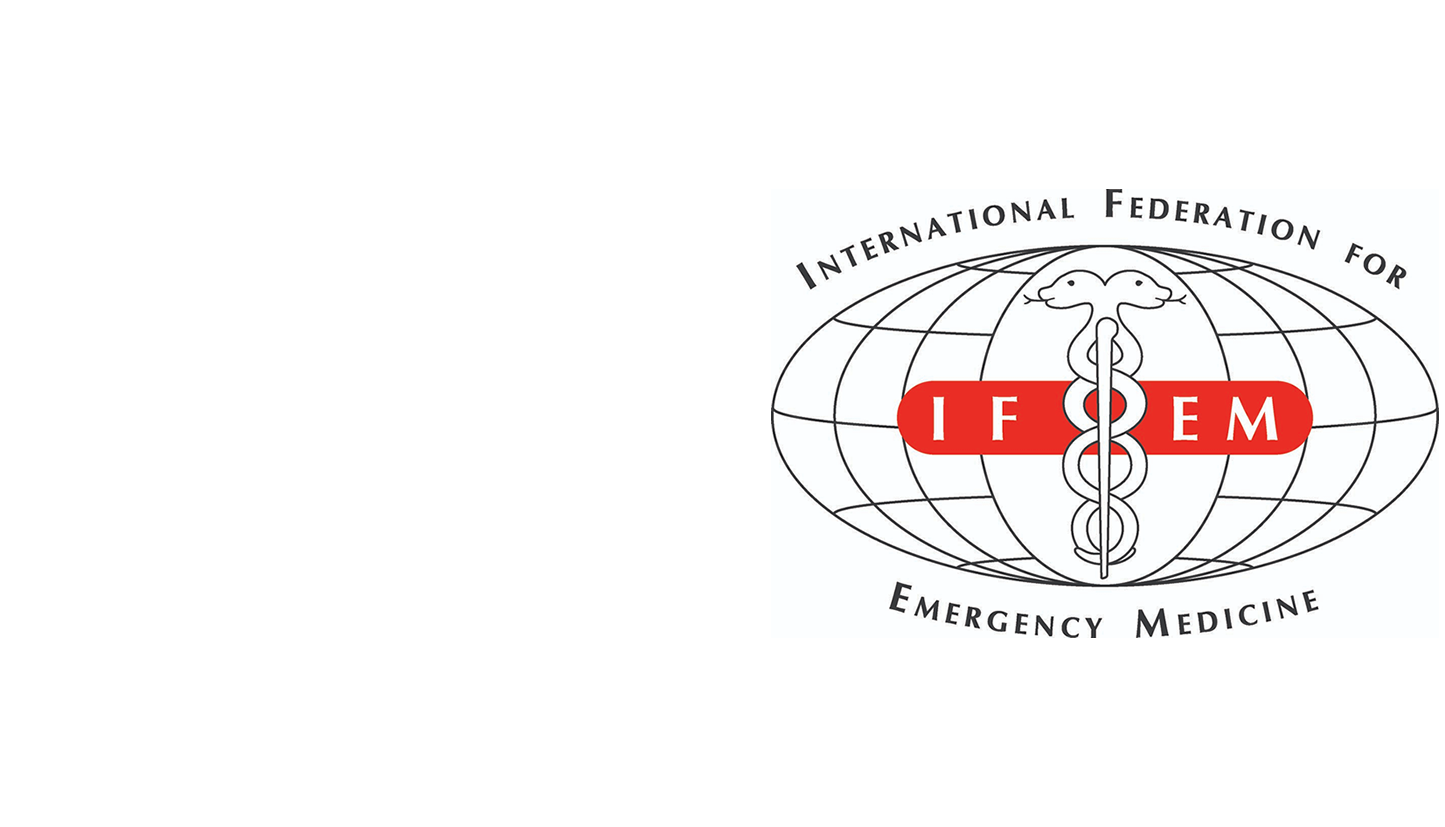
(IFEM)

The World Health Organisation estimates that nearly half of deaths and over a third of disability in low and middle income countries could be addressed by the implementation of effective emergency care. Many countries still have no, or very basic, first line pre-hospital and in hospital emergency care. This means that people suffer devastating impacts from road traffic accidents, workplace injury, infectious illness, heart attacks, stroke and other common problems – things that would be quickly treated in the UK. As a result, people, often children or young adults in the prime of life, die or are debilitated, and not able to work and live a fulfilling and productive life. This also threatens the economic future of an individual, their family, and their community.
The International Federation for Emergency Medicine (IFEM) is dedicated to changing this through leading the development of the highest quality of emergency medical care for all people, in all countries. A predominantly volunteer run organisation, IFEM is made up of emergency medicine professional organisations from 66 countries, from all regions around the world. IFEM comprises of a network of emergency medicine specialist doctors who deliver emergency care in their own countries, and collaborate to improve emergency care across the world through:
IFEM was founded in 1991, with RCEM being a founding member. RCEM has maintained strong ties with IFEM, providing support and through commitment to the work of IFEM in advancing emergency medicine internationally.
IFEM hosts the annual International Conference on Emergency Medicine (ICEM) – see the previous and upcoming venues.
IFEM Board of Directors 2022-2024
Executive
Dr Saleh Fares Al-Ali | President-Elect
Dr Ffion Davies | Consultant
Professor Sally McCarthy | Immediate Past President
Dr Paul Ho | Vice President
Dr Cherri Hobgood | Secretary
Dr T S Srinath Kumar | Treasurer
Professor Janis Tupesis | Liaison and Oversight Officer
Professor Elizabeth Devos | Director Academic Activities
Paul O’Connor | Independent Non-Executive Director
Regional Representatives
Asia | Dr Faith Mesa-Gaerlan
Europe | Professor Maaret Castren
Australasia | Dr John Bonning
Africa | Dr Mulinda Nyirenda
Central and South America | Professor Edgardo Menendez
North America | Dr Constance LeBlanc
Clinical Practice Committee
Chair | Don Melady
Continual Professional Development Committee
Chair | Dr Eddie Yuen
Core Curriculum and Educational Committee
Chair | Dr Arif Alper Cevik
Finance Committee
Chair | Dr T S Srinath Kumar
Governance Committee
Chair | Professor Andrew Singer
Research Committee
Chair | Sowjanya Patibandla
Specialty Implementation Committee
Chair | Dr Pauline Convocar
Disaster Medicine Special Interest Group
Dr Ian Maconochie
Emergency Ultrasound Special Interest Group
Mr James Connolly
Dr Rip Gangahar
Professor Tim Harris
Robert Jarman
Srinith Kumar
Gender Specific Issues Special Interest Group
Dr Priya Marathe
Dr Katherine Henderson
Dr Ffion Davies
Professor Fiona Lecky
Dr Angharad Spencer
Professor Suzanne Mason
Geriatric Emergency Medicine Special Interest Group
Professor Suzanne Mason
Dr Jay Banerjee
Dr Simon Conroy
Dr James Van Oppen
Arjun Thaur
Paediatric Emergency Medicine Special Interest Group
Dr Simon Chu
Quality and Safety Special Interest Group
David Hodgson
Professor Fiona Lecky
Srinath Kumar
Advisory Group
Mr Gautham Bodiwala
Mathew Alex
Venkat Kotamraju
If you would like to contact any of these representatives, please contact globalem@rcem.ac.uk
Many more RCEM members contribute through committees, working groups, taskforces or networking at IFEM conferences and other events.
As a federation of grassroots emergency medicine organisations from countries and regions with mature and highly developed emergency care systems, and systems in various stages of development or just starting out, IFEM has unique insight and reach into health systems globally. Members are experts in all facets of emergency care, delivered in all environments, to all ages and types of patients. This enables IFEM to rapidly harness expertise and draw global teams together to work on a project, or any emergency care challenge.
Some of the resources IFEM has recently produced include:
The positive impact IFEM has on people’s lives across the globe is only possible because of our members and volunteers who donate their time, expertise, and resources. If you would like to get involved and play a critical role in advancing global emergency medical care, we encourage you to get in touch. Your financial support will also play a critical role in scaling up the work IFEM does.
To learn more visit www.ifem.cc
Subscribe to the IFEM newsletter at www.ifem.cc/newsletter
Follow IFEM on Facebook @InternationalFederationforEmergencyMedicine and Instagram and Twitter @IFEM2
23rd International Conference on Emergency Medicine
Host: Taiwan Society of Emergency Medicine (TSEM)
More information and register.
25th International Conference on Emergency Medicine
Host: German Association for Emergency Medicine (DGINA)
22nd International Conference on Emergency Medicine
Host: Netherlands Society of Emergency Physicians (NVSHA)
Hybrid Conference
21st International Conference on Emergency Medicine
Host: Australasian College for Emergency Medicine
Cancelled due to Covid-19
19th International Conference on Emergency Medicine
Host: Argentine Society of Emergency Medicine
18th International Conference on Emergency Medicine
Host: Korean Society of Emergency Medicine
17th International Conference on Emergency Medicine
Host: Sociedad Mexicana de Medicina de Emergencieas
